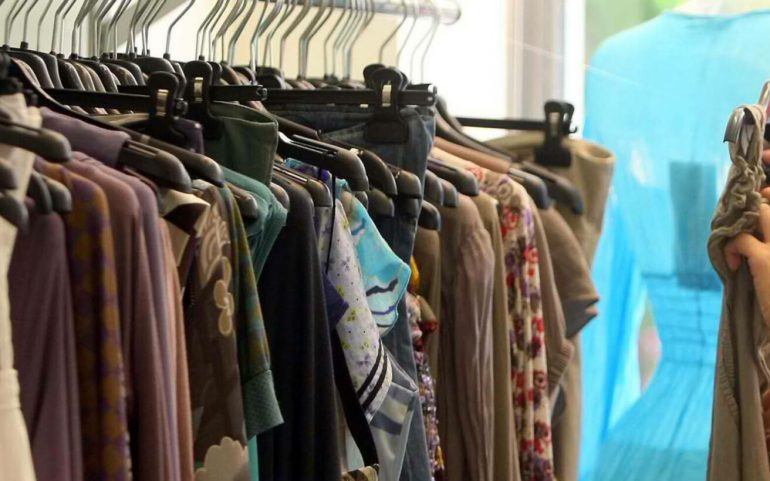The "dedicated consumers»Is the demand for every business for many decades. However, the increasing speed of goods and services is increasingly limiting the percentage of customers who are "loyal followers" of a product or a commercial enterprise. The so-called "stable customer base" has been shrinking for the past 20 years and large retail chains are increasingly relying on marketing to attract and retain their customers. This is a "battle" of everyday life that is not easy to win.
Maintaining customer confidence proved to be a difficult bet in 2020 as well as it looks like it will prove to be even more difficult in 2021.
The data provided by McKinsey after a relevant research revealed that a significant part of consumers (36%) tried new brands in the midst of the pandemic. Of these, 73% seem "open" to the possibility of continuing to experiment with new products.
Buyers are clearly not afraid to try new products and behaviors and this trend is likely to become even more pronounced in 2021 as new brands enter the market.
Maintaining as well as expanding the customer base is a new and at the same time big bet that companies are facing.
This is where the important role of retail comes into play, ie the last "stop" of the product before the final consumer. Retailers need to "embrace" and integrate data analytics applications in order to create personalized shopping experiences for both online and in-house customer transactions. This is clearly easier for large chains, which have increased ability to analyze their customer behavior and related categorization.
But how can it be done? A good example of this practice is grouping customers based on the frequency or value of their purchases, with the ultimate goal of targeting them more effectively.

In the smallest shop The ρος merchant, ie the owner and the seller, continue to play an important role. Small shops have had a microcredit policy since the beginning of the financial crisis, which traps the customer, but also involves a relative credit risk. The famous "notebook" has been breaking ground in recent years and the "good customer" is rewarded with unsecured credit, obviously gaining a very close and relatively inseparable relationship with the merchant of his choice. Credit risk has the natural consequence of some customers disappearing leaving the now infamous "fess", but the majority show consistency in debt repayment and strengthening the commercial bond.
Trade associations, chambers and trade federations are already engaged in "creating" dedicated consumers in business. They conduct periodic surveys to record market operating conditions, formulating relevant requests to the State, specialized business strategies and a grid of variables and risks involved in the extension of these practices.

"Traditionally, retail was based on the special relationship built by a shopkeeper and a customer. It was really important for the consumer to know that there is a store where he can find what he wants. But now things are changing very fast. This relationship of trust becomes more and more impersonal, due to the rapid changes that take place in our lives and daily life. "With the exception of some neighborhood stores that have a steady customer base, the issue of consumption has changed significantly." points out speaking to newsbeast.gr the president of the Athens Chamber of Commerce, Giannis Chatzitheodosiou.
"Now the e-commerce has gained a very significant market share and more and more consumers are choosing this way for their purchases. At the same time it is found that many try new products that can be easily found online. What is needed is for professionals to adapt to the new data and to make more and more use of the possibilities that the evolution of technology gives them. It is no coincidence that we, as a Chamber, encourage our members to proceed with the digital transformation of their businesses, while at the same time supporting them to have their own e-shop and their own website completely free of charge, so that they can access even larger markets. This need was clearly seen in the pandemic as well ", emphasizes Giannis Hatzitheodosiou.
"I must say that no matter how much technology advances, it is necessary for the consumer to have confidence in the company that chooses to make his purchases. And this is achieved when there is consistency in the delivery of the product and of course the corresponding quality assurance. The personal contact between seller and buyer may now be limited, but the consumer will always "weigh" how the seller of a product behaves. It is therefore up to the companies, even online, to convince the public that addressing them will not be lost "notes o President of the Athens Chamber of Commerce.

Only 17% of small stores already have an eshop, explains speaking to newsbeast.gr the president of GSEVEE, George Kavvathas while at the same time he emphasizes that in order for a company in the pandemic to see profits, it must proceed directly to its digital transformation.
Focusing on small professionals, he points out that they try to have a good and friendly relationship with the consumer, explaining "this is the big bet as they are interested in retaining their customers".
"Greek consumers are open to try new products. In general, as a society we are open and many times customers are prone to the "fresh idea". It is in our dna "explains the president of the General Confederation of Professional Craftsmen of Greece.
